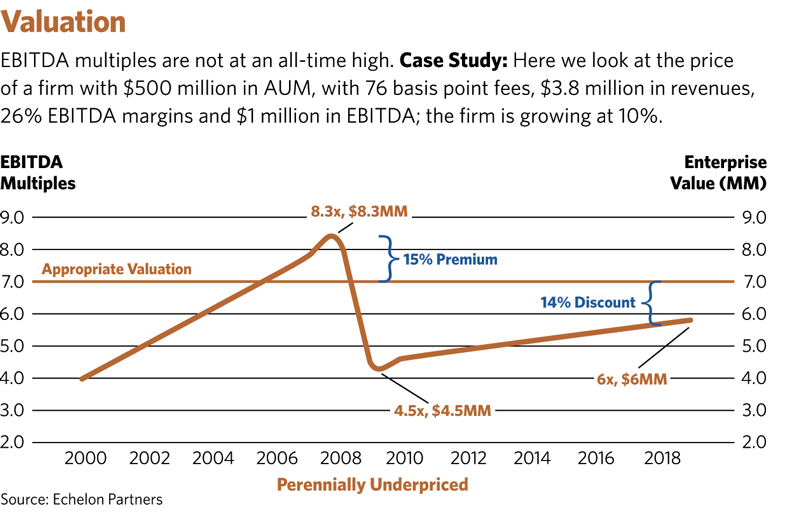The common assumption among many wealth management industry observers is that private equity investors have overinflated the price of RIA firms. On the surface, it’s easy to see how this perspective has taken root.
Since it’s no secret that over the last decade private equity firms have aggressively pursued deals in our space, it seems logical to conclude that mounting competition boosted demand and caused RIA valuations to spike—all of which put owners in the driver’s seat, allowing them to sell their firms at extraordinary premiums.
That, however, is not really what has happened.
Don’t Confuse Deals With Premiums
Without a doubt, RIA M&A activity has increased dramatically. According to our data, 2019 was the seventh straight record-setting year in terms of the number of deals completed, with 203 transactions recorded in ECHELON’s RIA M&A Deal Report. That was up 12.2% over the previous year, and, all told, the annual growth rate is higher than 15% since 2015.
While some of the largest deals during this time were carried out by private equity firms, an overwhelming majority of them had no private equity involvement at all. What’s more, just because there were more deals, it doesn’t mean that sellers have been successful in persuading buyers to pay unreasonable prices.

Going back over a decade, in fact, many RIAs have actually been underpriced based on earnings multiples (see chart)—even as there was a historic, decade-long run-up in the stock market.
The Professionalization Of Wealth Management
Private equity’s near-term legacy, therefore, is not that it has caused the RIA market to overheat. Rather, it is that these professional buyers have pushed wealth management firms to establish more structure, discipline and organization, a trend that has benefited everyone in the industry.
Granted, a large number of firms would have actively professionalized their operations anyway, including the emerging group of next-gen advisors—those who have begun to replace the original firm founders who never strayed from their lifestyle practice business model. However, the entrance of private equity money has hastened this trend considerably.








